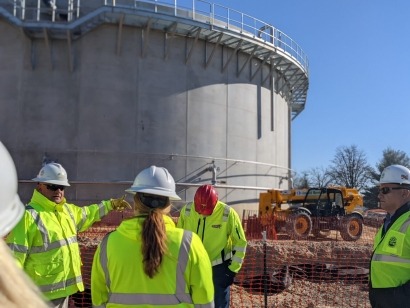
The partnership between BDC and MCUA will see the development of a state-of-the-art facility that will recycle organic food waste from Middlesex County and central New Jersey creating renewable natural gas and organic soil amendments. This project is part of MCUA's commitment to environmental sustainability, as it will reduce greenhouse gas emissions and move the MCUA toward achieving its sustainability goals. The project will also create local jobs and stimulate economic growth in the area.
"We are proud to have been chosen by MCUA to partner on this project and help them achieve their sustainability goals," said Shawn Kreloff, CEO of Bioenergy Devco. "Our anaerobic digestion technology is a proven solution for organics recycling, diverting food waste from landfills and moving us towards a circular and sustainable future. We are committed to working with MCUA in constructing a facility tailored to the community, and we look forward to bringing the benefits of organics recycling to Middlesex."
Widespread organics recycling through anaerobic digestion is a significant step towards achieving a more sustainable future, and Bioenergy Devco is at the forefront of this effort. With their expertise in anaerobic digestion technology and unique ability to design bespoke facilities to meet each project's specific needs and goals, BDC is well-positioned to help communities across the country achieve their sustainability goals.
"We are excited to work with Bioenergy Devco to bring this project to fruition," said John Wiley, Chairman of the Middlesex County Utilities Authority. "We anticipate that this facility will not just assist us in accomplishing our sustainability objectives, but it will also yield economic advantages for the area and enhance the standard of living for our community members."
The facility will be co-located with current Solid Waste Division facilities in East Brunswick and is expected to process up to 115,000 tons of organic waste. The renewable natural gas produced will be used to power homes and businesses in the region, while the organic soil amendment produced will be used to improve soil health and crop yields.

